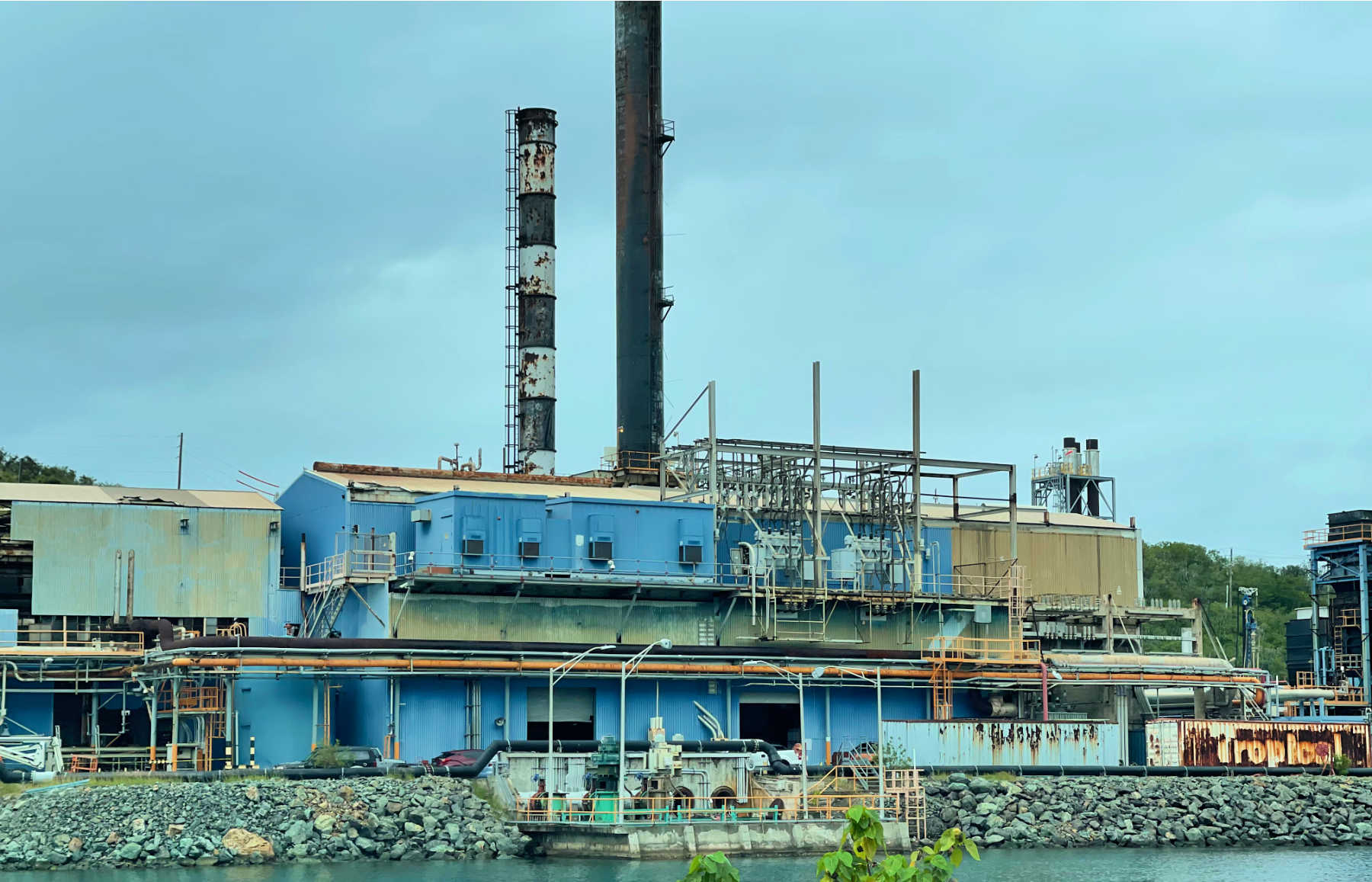WAPA
PSC Stands Ground on Electricity Rates Despite WAPA’s Deferred Fuel Cost Dilemma

The Public Services Commission (PSC) recently addressed the Water & Power Authority’s (WAPA) plea to extend the existing electricity rate under the Levelized Energy Adjustment Clause (LEAC), amid discussions about the disparity between WAPA’s fuel expenditures and the costs recovered from consumers.
WAPA’s argument of a burgeoning deferred fuel cost balance could not sway the commission, primarily due to the absence of audited financial statements for recent years. This lack of financial transparency hampered discussions about transferring these costs to consumers, the PSC highlighted.
During a presentation, consultant Jim Madden pointed out that WAPA has requested the maintenance of the current LEAC rate of 22.22 cents per kilowatt-hour until at least June 30. He emphasized that while considering this extension, it’s important to acknowledge the deferred fuel balance for the electric system stood at $18 million as per the latest audited financial statement from fiscal year 2020, nearly three and a half years ago.
PSC Commissioner David Hughes intervened with a reminder that the commission had previously resolved to defer discussions on deferred fuel balances until WAPA submits audited financial statements. A brief discussion ensued, leading to a consensus to hear out the report with the understanding that no decisions regarding the deferred fuel cost balance would be concluded.
Madden expressed that the resolution on how to manage the growing gap between fuel costs and consumer charges depends on guidance from the commission. Yet, Hughes posited that this disparity might not even exist, suggesting that a reevaluation of the calculations could eliminate the deferred fuel balance from WAPA’s financial records. The true state of affairs, he argued, could only be determined through the pending audits.
Clarifying WAPA’s stance, CEO Andrew Smith mentioned that the utility is not seeking deferred fuel recovery at the moment. Subsequently, Hughes proposed, and the commission unanimously agreed, to extend the current LEAC rate into the upcoming quarter.
However, Madden hinted at the looming necessity to address the recorded discrepancies, suggesting that this issue might resurface in future discussions.
WAPA
Vitema Offices on St. Thomas Closed Due to WAPA Potable Water Disruption

U.S. Virgin Islands – The Virgin Islands Territorial Emergency Management Agency (VITEMA) Director is advising the public that the St. Thomas offices are closed effective immediately due to a WAPA potable water disruption.
According to WAPA’s statement, the problem is expected to be fixed later this evening and, as such, VITEMA’s St. Thomas office will reopen as usual tomorrow, Wednesday, May 15, 2024 for normal operations, 8am-5pm.
The St. Thomas 911 operations remain functioning as usual.
WAPA
Loud Boom at Randolph Harley Power Plant Leads to Safety Precautions

A startling boom at the Randolph Harley Power Plant in St. Thomas prompted an evacuation of the V.I. Water and Power Authority (WAPA) personnel on Thursday. Contrary to initial fears of an explosion, the noise was identified as a safety feature activation—a rupture disk—intended to prevent damage to critical systems, according to WAPA spokesperson Shanell Petersen.
This safety mechanism, which triggered the evacuation, responds automatically when it detects potential threats to the plant’s integrity. The activation caused significant concern, initially described as an explosion by a WAPA official. In response, the V.I. Fire and Emergency Services dispatched teams, and the Virgin Islands Police Department secured the plant’s perimeter.
Petersen explained the evacuation was a necessary precaution due to the intensity of the noise. She clarified that such measures ensure the safety of the staff, highlighting that the rupture disk’s role is a proactive safety response.
The event occurs amid ongoing challenges for WAPA in maintaining consistent power in the St. Thomas-St. John District. Following a district-wide outage on Wednesday, the region experienced similar power interruptions again today. Petersen noted that the rupture disk incident does not directly relate to the generation of power but is a separate safety measure.
The power issues have had widespread repercussions. The V.I. Department of Education had to cancel classes in the district for the second consecutive day. “Due to the ongoing power outage affecting the St. Thomas-St. John District, all schools within the district will remain closed today, Thursday, May 9, 2024,” announced the Department. “We apologize for any inconvenience and ask the public to follow official updates for further information on school operations.”
Additionally, the V.I. Superior Court announced closures due to a water service interruption, and the V.I. Economic Development Authority reported disruptions to its telephone services.
In related community impacts, the Lockhart K-8 Music Department has postponed its Spring Concert scheduled for today due to the unstable power supply, affecting not only educational institutions but also community events across the island.
WAPA
PSC Commissioner Calls for Hiring of Hearing Examiner Amid Concerns Over Water Safety in St. Croix

During a recent meeting with representatives from the Water and Power Authority (WAPA), Public Services Commission (PSC) member David Hughes expressed significant concerns about the current state of water testing in St. Croix, following last year’s alarming discovery of elevated levels of lead and copper. Hughes pressed for immediate action, questioning the delay in hiring a hearing examiner—a role outlined on the PSC’s website as crucial for overseeing utility compliance with regulations.
Hughes emphasized that the role of the hearing examiner is to work closely with utilities to ensure they meet the commission’s standards, particularly in regular testing to safeguard public health. “The PSC should be actively ensuring that WAPA maintains a consistent testing program that we can trust on behalf of consumers,” he stated.
The dialogue grew tense when Hughes criticized the commission’s efforts, responding to PSC Executive Director Sandra Setorie’s assurances that progress was being made with, “We as a Commission are not fulfilling our obligations.” He pointed to WAPA’s reactive measures—conducting 65 water tests in response to complaints about water discoloration—as insufficient and indicative of a need for a robust, ongoing testing program.
WAPA’s Director of Water Distribution for St. Croix, Don Gregoire, defended their practices, stating that the water is tested daily in their own laboratory, following EPA guidelines which now mandate biannual testing. However, Hughes countered that without full transparency and understanding of the testing procedures, the commission could not confidently endorse the program.
The urgency for better oversight was further highlighted by a lawsuit alleging serious deficiencies at the St. Croix laboratory, including outdated certifications and improper sample collection. These revelations support Hughes’s argument for enhanced oversight to ensure WAPA’s accountability and transparency.
Hughes also pointed out a broader issue of information deficit and lack of transparency from WAPA, underscoring the PSC’s duty to keep the public informed. “We’re not doing our job in regulatory oversight,” he lamented.
In a positive note, WAPA Chief Operating Officer for Water, Noel Hodge, announced a substantial FEMA grant aimed at overhauling St. Croix’s water infrastructure over the next two decades, with a detailed capital improvement plan underway and initial construction expected to start within three years.
Hughes’s call for the appointment of a hearing examiner underscores a critical need for PSC to enhance its regulatory role and ensure that such public health emergencies do not recur, reflecting a commitment to uphold safety and transparency in public utilities.
-

 Education9 months ago
Education9 months agoCTE Board Enthusiastic About New Curriculum Standards, Yet Anxious Over Apprenticeship Support
-

 Development3 weeks ago
Development3 weeks agoCosts Surge as Donoe Estates Housing Project Resumes with New Contractor
-

 Crime9 months ago
Crime9 months agoRegistered Sex Offender Detained for Illegal Firearm Possession During Annual Surveillance Drive
-

 Crime7 months ago
Crime7 months agoSt. John’s Westin Resort Scene of Armed Robbery, Prompting Heightened Police Vigilance
-

 Crime9 months ago
Crime9 months agoUnraveling the Home Invasion in St. John: Suspect Held on $100,000 Bail
-

 Crime9 months ago
Crime9 months agoU.S. Virgin Islands Alert: Megan Smith Goes Missing; Authorities Request Community Aid
-

 Videos2 years ago
Videos2 years ago2022 Gubernatorial Election: Voters Speak Out
-

 Videos2 years ago
Videos2 years agoGubernatorial Teams Celebrate St. Croix’s Bull & Bread Day





